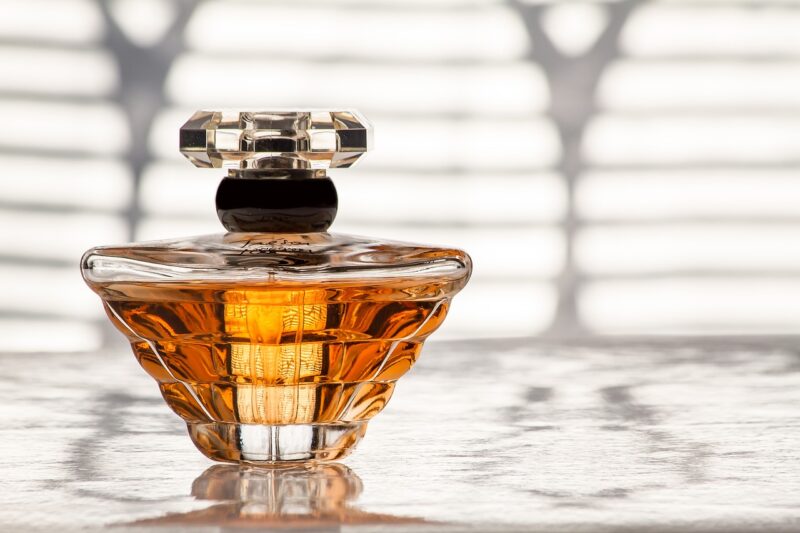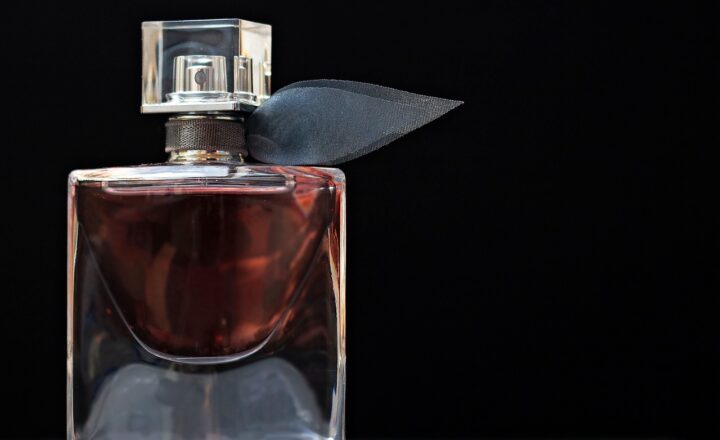The History of Perfume: How Scent Became a Symbol of Luxury and Identity
November 16, 2024

Perfume has been an important aspect of human culture for thousands of years, transcending time and geography. From its early origins in ancient civilizations to its place in the modern luxury market, scent has played a crucial role in rituals, everyday life, and personal expression. This article explores the fascinating journey of perfume, examining how it transformed from a simple blend of aromatic substances into a powerful symbol of identity and luxury.
1. The Ancient Beginnings of Perfume
The earliest recorded use of perfume dates back to ancient Mesopotamia around 4000 B.C. The Sumerians are credited with developing the first documented recipes for perfume, utilizing a combination of essential oils and various plant materials. This early form of fragrance was often associated with religious practices, serving as offerings to gods or used in ceremonies to enhance the sanctity of rituals.
The ancient Egyptians elevated perfume to an art form, intricately linking it with their spiritual life. Scents were believed to hold the power to connect the physical and the divine. They would use perfumes not only for worship but also in burials, to preserve the body and please the gods in the afterlife. Fragrance was a luxury, enjoyed by royalty and the elite.
Some of the most famous perfumes of ancient Egypt included:
- Kyphi: A complex blend of resins, herbs, and honey, often used during religious rituals.
- Myrrh and Frankincense: Highly valued for their aromatic properties, used in both worship and daily life.
As trade routes expanded, perfumes began to spread throughout the Mediterranean, reaching the Greeks and Romans, who incorporated scents into their daily lives and lavish banquets.
2. The Role of Perfume in Ancient Greece and Rome
Perfume gained immense popularity in ancient Greece, where it was closely associated with beauty and social status. The Greeks were known for their love of scented baths and often used fragrances to please their senses. Notably, they had a goddess of scents, Aphrodite, who came to symbolize beauty and love.
In ancient Rome, perfume took on a more extravagant character. The Romans took their appreciation for scent to new heights, leading to the development of elaborate scented oils and perfumes. They used fragrance to mask body odor, as hygiene practices were quite different from today’s standards. The richness of Roman society allowed elites to indulge in heavy and complex fragrances, making perfume a sign of wealth and sophistication.
Key points of intrigue during this era include:
- Perfume-making Guilds: Established to create and distribute scents, indicating the rise of perfume craftsmanship as a respected profession.
- PublicBathhouses: Featured scented oils as part of their services, creating a social space infused with aroma.
The fall of the Roman Empire didn’t signal the decline of perfume culture; rather, it evolved as new influences emerged across Europe and the Middle East.
3. The Evolution through the Middle Ages
During the Middle Ages, the use of perfume shifted significantly. The rise of Christianity marked a transition where many of the pagan rituals involving scents were suppressed. However, perfumes did not vanish; instead, they became confined to the realms of the elite. The aristocracy continued to use fragrance as a means of distinction, while lower classes utilized simple herbal concoctions to freshen their surroundings.
The decline of classical civilization led to a surge in the popularity of scented oils in the Muslim world. Arabic perfumers made significant advancements in distillation, allowing for the extraction of fragrant oils from plants and flowers. This period saw the introduction of new ingredients, such as rose, jasmine, and amber, which remain popular in perfumery today.
The renowned Persian scholars and alchemists documented their techniques and recipes, laying the foundations for modern perfumery. Significant contributions were made by:
- Ibn Sina (Avicenna): Credited with the development of steam distillation, revolutionizing the way perfumes were made.
- The development of abstracts: Techniques that allowed for the creation of scents from plant materials in a more concentrated format.
With the advent of the Renaissance in Europe, interest in perfume was reignited, blending both cultural and scientific advancements to further enhance the art of scent.
4. Perfume in the Renaissance: A New Beginning
The Renaissance sparked a revival of arts and sciences across Europe, which extended to the world of perfume. This era is often considered the golden age of perfumery. The rediscovery of ancient texts added knowledge and techniques to scent-making, while an eagerness to demonstrate wealth and sophistication fueled its popularity.
Places like Florence became hubs for perfumers, and the art of scent-making evolved into a legitimate profession. The introduction of alcohol as a base for fragrances was transformative. It allowed scents to be more lasting and pleasant, paving the way for modern perfume.
Notable points from this period include:
- The creation of Eau de Cologne: Invented by Giovanni Maria Farina in 1709, marking the trail for a new genre of light, refreshing scents.
- Perfumed gloves: A fashion trend among European nobility, offering a unique accessory that combined both style and scent.
Scent became an essential element of personal grooming and expression, with aristocrats using fragrances as a way to distinguish themselves from others.
5. The Industrial Revolution and Perfume Mass-Production
The Industrial Revolution of the 19th century brought radical changes to perfumery. Advances in chemistry allowed for the synthesis of new fragrances, expanding the repertoire of scents available. The mass-production of perfume made it more accessible to the general population, democratizing scent to a degree unseen before.
This era saw the emergence of famous perfume houses, including:
- Guerlain: Founded in 1828, recognized for its craftsmanship and bespoke compositions.
- Chanel: Introduced Chanel No. 5 in 1921, revolutionizing the way perfume was marketed, emphasizing branding and celebrity endorsements.
The rise of advertising and the concept of branding brought fragrance into popular culture. Scent became not just a personal accessory, but also a lifestyle symbol and an avenue for self-expression.
6. Modern Perfume: The Symbolism of Identity and Luxury
Today, perfume stands as a multifaceted representation of identity and luxury. The global fragrance market has evolved into a billion-dollar industry, with countless brands offering assorted scents. Perfume is no longer just about personal aromas; it has become synonymous with status, lifestyle, and individuality.
Modern perfumeries create intricate narratives around their fragrances, often intertwining them with culture, emotion, and art. The artistry and creativity behind each perfume have turned scent concoction into a seemingly magical process:
- Craftsmanship over Mass Production: Niche brands are emphasizing artisanal craftsmanship and exclusive ingredients, catering to consumers looking for unique scents.
- Sustainability and Ethics: Modern consumers are increasingly concerned about the environmental impact of perfumery, driving brands to pursue sustainable practices and ethically sourced ingredients.
Perfume has permeated contemporary life, with different scents becoming a means of expressing personal style and identity. Celebrities and influencers play a pivotal role in shaping trends, adding a cultural dimension to the perfume experience. The art of perfumery continues to flourish, with innovative techniques and technology shaping the future of scents.
Conclusion
From its origins in ancient civilizations to its embrace in modern luxury, the history of perfume is a remarkable journey of evolution and innovation. Scent transcends mere fragrance; it embodies a plethora of meanings that are deeply personal yet universally understood. Perfume remains an enduring symbol of identity, memory, and luxury, continually reflecting the culture and desires of society.
As we delve into the enchanting world of scents, we celebrate not just the aroma itself, but also the rich history woven into every bottle. The legacy of perfume proves that scent is an art form—one that has the power to evoke emotions, create memories, and solidify connections across cultures and time.








